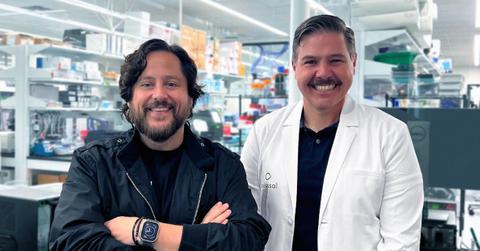Colossal Biosciences Establishes Australian Hub with Dr. Andrew Pask at the Helm
His work has been focused on marsupials and the very real possibility of bringing the thylacine back to life.
Published Aug. 20 2025, 4:08 p.m. ET

For decades, the thylacine, or Tasmanian tiger, has been a sort of ghost story—a haunting symbol of what can be lost forever. A unique predator, it was driven to extinction by humans, a final captive dying in 1936. But in the world of science, a new kind of story is being written. It’s a story of redemption, and a man who has dedicated his career to making sure the next chapter on this species will be written.
That man is Dr. Andrew Pask. For years, he has been a pioneer, leading a research team at the prestigious University of Melbourne, a quiet force in the audacious field of de-extinction. His work has been focused on marsupials and the very real possibility of bringing the thylacine back to life. But in a move that signals a significant turning point, Dr. Pask is no longer just a partner in the work; he has been named Chief Biology Officer at Colossal Biosciences, the company at the forefront of this effort.
This isn't a simple hire. It's an affirmation of purpose and a strategic move. Colossal, known for its work on the woolly mammoth, the dodo, and recently announced moa, is now doubling down on its commitment to the thylacine. The company is acquiring Dr. Pask's entire lab, making it the cornerstone of Colossal Australia.
This move is a strategic one, signaling that this ambitious enterprise is making a real and long-term commitment to a continent that, unfortunately, is known for having the world's highest rate of mammal extinctions.
Dr. Pask’s new role will put him in charge of global developmental biology for all de-extinction projects, reporting to Colossal’s Chief Science Officer, Dr. Beth Shapiro. In a statement, Dr. Pask said this was an “extraordinary opportunity to help shape the future of de-extinction.”
His work, which has already garnered international acclaim, will now benefit from the resources of a private company, bridging the gap between academic research and real-world impact.
In an era when much of our news is dominated by stories of loss, this is a story of hope. The team at Colossal is not just trying to bring back a species; they are also applying that same science to help save animals that are still with us. It’s an ambitious mission, to be sure.
However, in the appointment of a man like Dr. Pask, it feels less like a dream and more like a well-planned strategy.